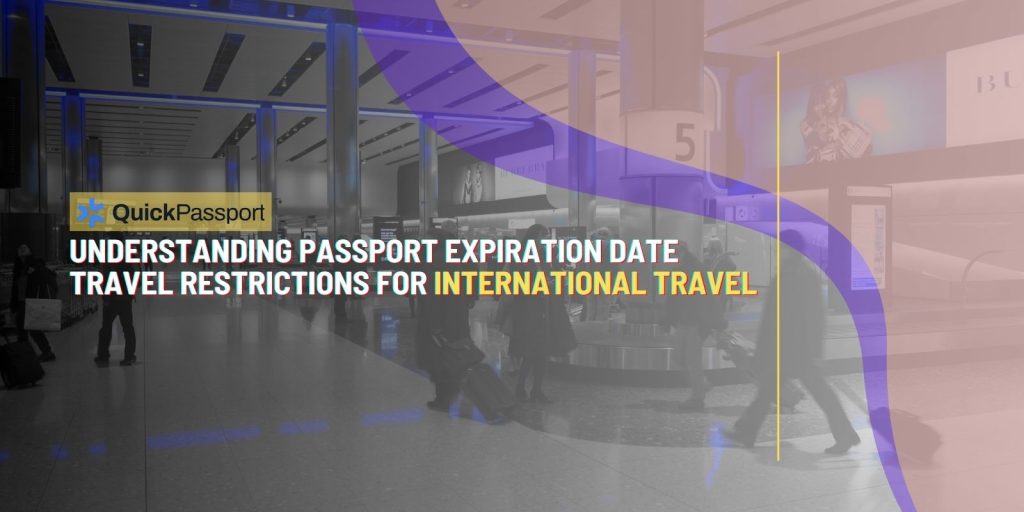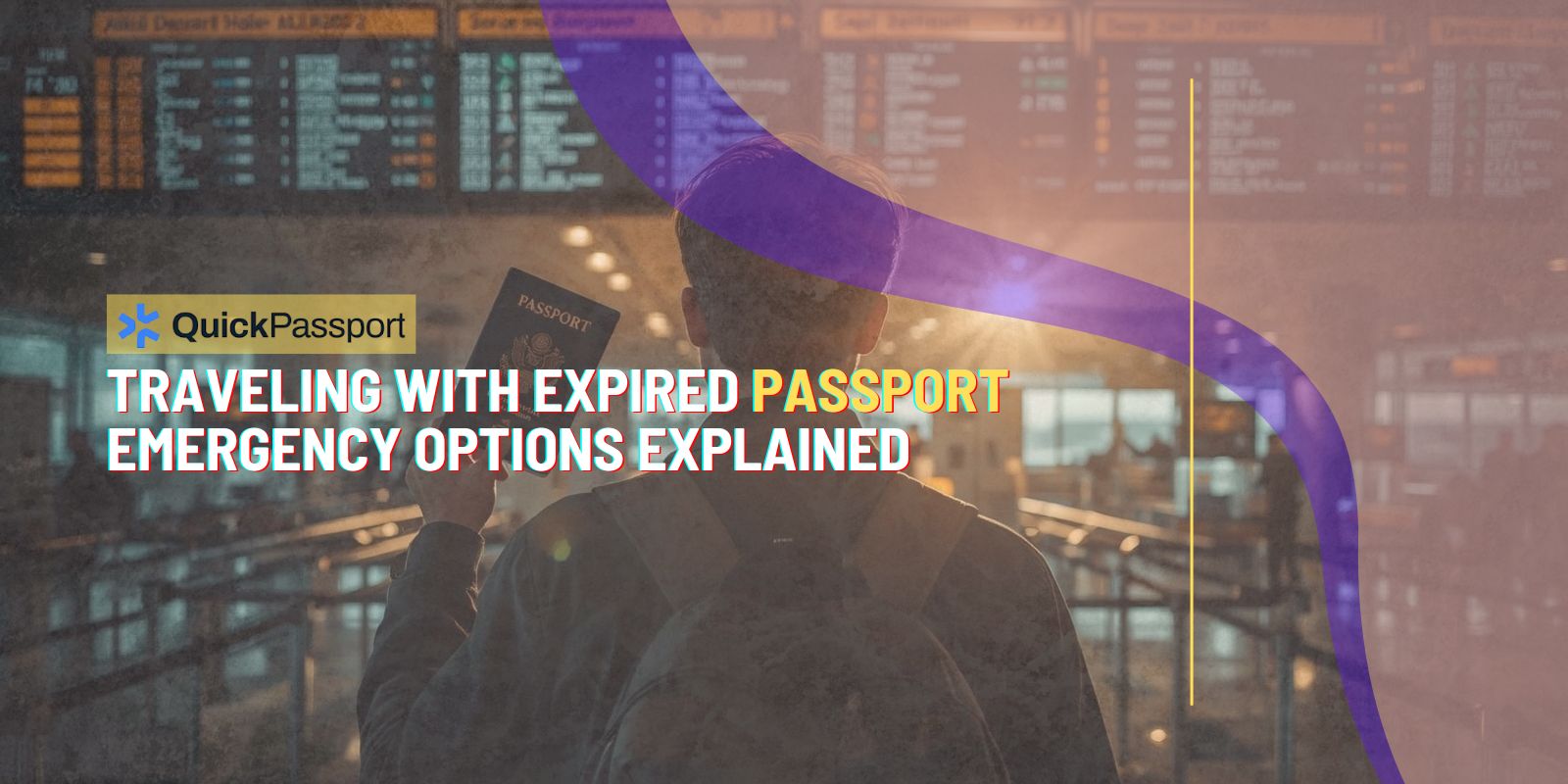Your passport expiration date affects international travel far more than many travelers realize. While you might assume a valid passport means smooth travels until the actual expiration date, most countries impose strict validity requirements that can prevent entry even with months remaining on your passport. These restrictions, commonly known as passport validity rules, vary significantly by destination and can turn dream vacations into airport nightmares for unprepared travelers.
Understanding these requirements becomes crucial for anyone planning international travel, whether for business, leisure, or family visits. Airlines often deny boarding to passengers whose passports don’t meet destination country requirements, and border officials routinely refuse entry to travelers with insufficient passport validity remaining. The financial and emotional costs of cancelled trips, rebooking fees, and missed opportunities make passport validity planning an essential part of travel preparation.
Overview
This comprehensive guide explores passport expiration date travel restrictions that affect international travelers from Arlington and throughout the United States. You’ll learn about the widespread six-month validity rule, understand how different countries implement varying passport requirements, and discover practical strategies for timing passport renewals around your travel plans. We’ll examine specific restrictions by region, explain what happens when passports expire abroad, and provide actionable guidance for avoiding travel disruptions.
The guide covers essential topics including country-specific validity requirements, airline policies regarding passport expiration, emergency renewal procedures for urgent travel, and the role professional services play in ensuring compliance with international travel regulations. Whether you’re planning a single trip or managing ongoing international travel, understanding these restrictions helps protect your travel investments and ensures smooth border crossings.
Key Takeaways
• Six-month validity rule requires passports to remain valid for at least six months beyond your planned departure date from most international destinations
• Country-specific requirements vary significantly, with some nations requiring only three months validity while others demand longer periods or additional blank pages
• Airlines enforce restrictions at departure gates and often deny boarding to passengers whose passports don’t meet destination requirements, regardless of actual validity
• Renewal timing should account for both processing time and travel plans, with applications ideally submitted 8-10 months before expiration for frequent travelers
• Emergency procedures exist for urgent travel needs, though professional services like QuickPassport Arlington provide more reliable expedited processing in 1-2 weeks
• Regional variations mean European, Asian, and Latin American destinations often have different passport validity standards that require careful research before travel
The Six-Month Passport Validity Rule Explained
The six-month passport validity rule represents the most common international travel restriction affecting U.S. passport holders. This requirement mandates that your passport remain valid for at least six months beyond your intended departure date from the destination country, not your arrival date. The rule exists to ensure travelers maintain valid documentation throughout their stay and provide buffer time for unexpected travel delays or extensions.

Most countries implementing this rule refuse entry to travelers whose passports expire within six months of their planned departure, regardless of trip duration. A weekend trip to certain destinations requires the same six-month validity as extended stays, making this rule particularly frustrating for short-term travelers with otherwise valid passports. Immigration officials apply this requirement strictly, with limited exceptions for emergency situations or diplomatic interventions.
The U.S. State Department maintains updated information about country-specific passport requirements, though individual nations may implement additional restrictions beyond basic validity periods. Understanding these requirements before booking travel prevents costly complications and ensures compliance with international immigration standards.
Airlines typically verify passport validity requirements before departure and may deny boarding to passengers who don’t meet destination country standards. Airline liability concerns drive strict enforcement of these rules, as carriers face penalties for transporting passengers who are subsequently denied entry at international destinations.
Professional services like QuickPassport Arlington help travelers navigate these requirements by providing current information about destination-specific rules and ensuring passport renewals align with travel timeline needs. Our Priority Service processes renewals in just 1-2 weeks, providing reliable options when standard processing times don’t accommodate travel deadlines.
Country-Specific Passport Validity Requirements
European destinations generally follow the six-month validity rule for U.S. travelers, though specific requirements vary by country and purpose of travel. Most European Union nations require at least three months validity beyond departure dates for tourist visits, while some countries demand six months for business travel or longer stays. The European Union’s travel information portal provides comprehensive details about member country requirements.
Asian countries often implement the strictest passport validity requirements, with many destinations requiring six months validity plus additional blank passport pages for entry stamps and visas. Popular destinations like Thailand, Japan, and Singapore enforce these rules consistently, while China and India may require even longer validity periods depending on visa types and travel purposes.
Latin American destinations show significant variation in passport validity requirements, with some countries requiring only basic validity while others demand three to six months remaining. Mexico, a popular destination for U.S. travelers, requires only that passports remain valid for the duration of stay, while many Central and South American countries implement stricter requirements.
Caribbean nations typically require six months passport validity, though some destinations accept shorter validity periods for cruise passengers or travelers with return tickets. Understanding these nuances becomes particularly important for Caribbean travel, where multiple countries may be visited during single trips requiring compliance with varying requirements.
African and Middle Eastern destinations often require extensive passport validity periods, frequently demanding six months to one year remaining validity plus multiple blank pages for visa stamps and entry documentation. These regions also commonly require advance visa applications that add complexity to passport validity planning.
Research destination-specific requirements well before travel dates, as requirements can change based on diplomatic relationships, security concerns, or administrative policy updates. QuickPassport Arlington maintains current information about international travel requirements and helps clients ensure passport compliance for specific destinations.
Airline Policies and Passport Validity Enforcement
Airlines play a crucial role in enforcing passport validity requirements, often serving as the first checkpoint for compliance with international travel regulations. Carrier liability rules make airlines responsible for transporting passengers who meet destination country entry requirements, creating strong incentives for strict enforcement of passport validity standards at departure gates.
Most major airlines use automated systems that flag passengers whose passports don’t meet destination requirements during check-in processes. These systems typically check not only basic validity but also specific country requirements including minimum remaining validity periods and blank page requirements. Passengers flagged by these systems face additional scrutiny and potential boarding denial.
Gate agents receive training on common passport validity requirements for popular destinations, though complex or unusual requirements may require supervisor consultation or airline legal department guidance. Boarding denials based on passport validity issues typically cannot be appealed at the airport, requiring passengers to resolve passport issues before rebooking travel.
Airlines generally don’t provide refunds or compensation for travel disruptions caused by passenger passport validity issues, as these problems fall under traveler responsibility rather than airline operational failures. Travel insurance policies may provide some coverage for trip cancellations due to passport problems, though coverage varies significantly by policy terms and circumstances.
Some airlines offer courtesy notifications about passport validity requirements during booking processes or pre-flight communications, though passengers remain responsible for verifying current requirements. Professional travel services often provide more comprehensive guidance about passport requirements than airline customer service representatives, who focus primarily on transportation rather than entry requirement compliance.
Understanding airline enforcement practices helps travelers prepare for potential complications and ensures all documentation meets both destination country requirements and airline policy standards before departure dates.
What Happens When Your Passport Expires While Abroad
Passport expiration while traveling internationally creates serious complications that can strand travelers, generate significant expenses, and require extensive documentation to resolve. U.S. embassies and consulates provide emergency passport services for citizens whose passports expire abroad, though these services require time, documentation, and fees that can disrupt travel plans significantly.

Emergency passport replacement typically requires proof of U.S. citizenship, government-issued identification, passport photos meeting current standards, and documentation explaining the circumstances requiring emergency replacement. Processing times for emergency passports vary by location and circumstances, ranging from same-day service in major cities to several days in remote locations with limited consular services.
Emergency passports often receive limited validity periods, typically one year or less, and may include travel restrictions limiting destinations or requiring additional documentation for future travel. These temporary documents serve to facilitate immediate travel needs but require full passport replacement upon return to the United States for ongoing international travel.
Costs associated with emergency passport replacement include consular fees, expedited processing charges, and often significant additional expenses for extended stays, changed flight bookings, and accommodation costs while awaiting document processing. Travel insurance may provide some coverage for these expenses, though policies vary in their emergency passport replacement benefits.
Some countries impose exit restrictions on travelers whose passports expire during their stay, requiring formal exit visa processes or additional documentation beyond emergency passport replacement. Understanding local requirements becomes crucial when passport expiration occurs in countries with complex immigration procedures or limited U.S. consular presence.
Prevention remains the best strategy for avoiding passport expiration complications abroad, with careful attention to expiration dates during travel planning and proactive renewal scheduling that accounts for processing times and travel frequency.
Passport Renewal Timing for Frequent Travelers
Frequent international travelers face unique challenges in timing passport renewals around ongoing travel commitments and varying country requirements. Professional travelers often maintain overlap strategies, beginning renewal processes well before current passport expiration to ensure continuous travel capability without interruption.
The optimal renewal timeline for frequent travelers typically involves submitting renewal applications 8-10 months before current passport expiration, allowing adequate processing time while maintaining sufficient validity for most international destinations. This timeline accommodates potential processing delays, provides flexibility for urgent travel needs, and ensures compliance with six-month validity requirements for extended future booking periods.
Business travelers with rigid travel schedules may benefit from professional passport services that provide more predictable processing timelines than government standard processing. QuickPassport Arlington’s Priority Service offers 1-2 week processing that accommodates tight business travel schedules and provides reliable renewal completion for time-sensitive professional obligations.
Travelers visiting countries with extended validity requirements may need even earlier renewal timing, particularly when visiting destinations requiring 12-18 months remaining validity for certain visa types or extended stay purposes. Understanding specific destination requirements for your typical travel patterns helps optimize renewal timing for maximum travel flexibility.
Maintaining backup documentation, including certified copies of birth certificates and previous passports, streamlines renewal processes and prevents delays caused by missing supporting documentation. Organized record-keeping proves particularly valuable for frequent travelers who may need to submit renewals while abroad or during periods of intensive travel scheduling.
Consider seasonal factors in renewal timing, as peak processing periods during spring and summer months may extend standard processing times significantly. Professional services provide more consistent processing timelines that aren’t affected by seasonal demand fluctuations.
Emergency Passport Services and Expedited Processing
Life-or-death emergencies qualify for emergency passport services through U.S. passport agencies, though these services require extensive documentation and proof of emergency circumstances. Emergency appointments are limited and typically reserved for situations involving serious illness, death, or other documented emergencies requiring immediate international travel.
Emergency passport processing requires appointments at regional passport agencies, which operate in major metropolitan areas but may require significant travel for residents of rural areas. Appointment availability varies significantly based on demand and seasonal factors, with peak travel periods showing limited emergency appointment slots available.
Required documentation for emergency passport services includes proof of emergency circumstances, such as death certificates, medical documentation, or employer letters confirming urgent business travel needs. Emergency applications also require standard passport documentation including proof of citizenship, identification, and appropriate photographs meeting current requirements.
Expedited passport processing through normal channels provides more reliable options for urgent travel needs, processing applications in approximately 2-3 weeks versus standard 6-8 week timelines. Expedited service requires additional fees but doesn’t demand proof of emergency circumstances and offers broader appointment availability than emergency services.
Professional passport services offer the most reliable expedited processing options, with established relationships and streamlined procedures that minimize processing complications. QuickPassport Arlington’s Priority Service processes passport renewals and applications in 1-2 weeks, providing faster turnaround than government expedited service while maintaining thorough documentation review.
Planning ahead remains the best strategy for avoiding emergency passport situations, though professional expedited services provide reliable alternatives when urgent travel needs arise unexpectedly.
Checking Passport Requirements by Destination
Destination research requires consulting multiple authoritative sources to ensure complete understanding of passport validity requirements, visa needs, and entry restrictions. The U.S. State Department’s country information pages provide official guidance on entry requirements, though individual country embassy websites often contain more detailed or current information.

Embassy and consulate websites for destination countries offer the most authoritative information about passport validity requirements, visa procedures, and special restrictions affecting U.S. travelers. These sources update requirements more frequently than general travel websites and provide official clarification on complex or changing requirements.
Travel industry resources, including airline websites and professional travel agencies, provide practical guidance about passport requirements though these sources should be verified against official government information. Commercial travel resources excel at explaining practical implications of requirements but may not reflect the most current official policies.
Country-specific variations in passport validity requirements can change based on diplomatic relationships, security concerns, or administrative policy updates. Regular verification of requirements becomes particularly important for travelers visiting multiple destinations or planning extended international trips with complex itineraries.
Professional passport services maintain current databases of international travel requirements and provide personalized guidance about specific destination needs. QuickPassport Arlington helps travelers understand complex requirement interactions and ensures passport documentation meets all applicable standards for planned destinations.
Timing research appropriately allows adequate response time for passport renewals, visa applications, or other documentation requirements that may be needed for compliance with destination country standards.
Avoiding Travel Disruptions Due to Passport Validity
Proactive passport management prevents the majority of travel disruptions related to expiration date restrictions and validity requirements. Establishing personal tracking systems for passport expiration dates, renewal deadlines, and upcoming travel plans ensures adequate preparation time for necessary documentation updates.
Calendar reminders set 12 months before passport expiration provide adequate lead time for renewal planning, while additional reminders at 8 months allow for processing scheduling that accommodates most travel needs. Systematic tracking proves particularly valuable for families managing multiple passports with different expiration dates and renewal timelines.
Travel booking practices should include passport validity verification before finalizing reservations, ensuring all travelers meet destination requirements for the entire planned travel period. Pre-booking verification prevents costly cancellations and rebooking fees associated with passport validity discoveries made close to departure dates.
Understanding airline policies regarding passport validity helps travelers prepare for potential check-in complications and ensures compliance with carrier requirements. Airline enforcement of destination country requirements varies, though most major carriers use automated systems that flag potential passport validity issues during check-in processes.
Professional consultation provides valuable guidance for complex travel situations involving multiple destinations, extended stays, or unusual passport validity requirements. QuickPassport Arlington offers comprehensive passport planning services that ensure compliance with international travel requirements and prevent common validity-related complications.
Maintaining current passport validity also provides flexibility for unexpected travel opportunities, emergency family situations, or professional obligations requiring immediate international travel capability.
Special Considerations for Different Types of Travel
Tourist travel typically faces the most straightforward passport validity requirements, though these vary significantly by destination and trip duration. Most tourist destinations implement standard six-month validity rules, while some regions accept shorter validity periods for visitors with confirmed return transportation and accommodation reservations.
Business travel often encounters stricter passport validity requirements, particularly for travelers requiring business visas or attending conferences and meetings in countries with enhanced security protocols. Some nations require 12-18 months passport validity for business visa applications, making early renewal planning essential for frequent business travelers.
Study abroad programs and educational travel may require extended passport validity periods to accommodate academic year lengths and potential program extensions. Students should verify both host country requirements and potential travel opportunities within their study regions that may impose additional validity restrictions.
Cruise travel presents unique challenges as passengers may visit multiple countries with varying passport validity requirements during single voyages. Cruise passengers must meet the strictest requirements among all planned destinations, making comprehensive research essential for multi-port itineraries.
Transit travel through international airports may require passport validity compliance even for passengers not officially entering transit countries. Transit requirements vary significantly by airport and airline, with some locations requiring full compliance with destination country standards for all passengers passing through their facilities.
Professional guidance helps navigate these specialized travel requirements and ensures passport documentation meets all applicable standards for specific travel types and purposes.
Common Questions About Passport Expiration Date Travel Restrictions
How far in advance should I renew my passport before international travel?
For most international travel, renew your passport when it has 12 months or less remaining validity. This timing ensures compliance with six-month validity requirements while providing adequate processing time for renewal completion. Frequent travelers should consider renewal at 18 months remaining validity to maintain maximum travel flexibility and avoid restrictions imposed by countries requiring extended validity periods.
What happens if I book travel but my passport doesn’t meet validity requirements?
Airlines may deny boarding to passengers whose passports don’t meet destination country requirements, regardless of actual passport validity. Most airlines don’t provide refunds for travel disruptions caused by passenger passport issues, as these fall under traveler responsibility. Travel insurance may provide some coverage, though policies vary significantly in their passport-related benefits and coverage terms.
Can I travel if my passport expires in exactly six months?
Many countries require six months validity beyond your departure date, not arrival date. If your passport expires exactly six months from travel, it likely doesn’t meet requirements for destinations implementing the six-month rule. Consider the entire trip duration and planned departure date when calculating passport validity compliance for international travel.
Do all countries require six months passport validity for U.S. travelers?
No, passport validity requirements vary significantly by destination country. Some nations require only basic validity for trip duration, while others demand three months, six months, or even longer validity periods. European Union countries typically require three months validity, while many Asian and Latin American destinations implement six-month requirements. Always verify specific destination requirements before travel.
What should I do if my passport expires while I’m traveling abroad?
Contact the nearest U.S. embassy or consulate immediately for emergency passport replacement services. Emergency passport processing requires documentation including proof of citizenship, identification, passport photos, and evidence of emergency circumstances. Processing times vary by location, and emergency passports often receive limited validity requiring full replacement upon return to the United States.
Can I get an emergency passport for vacation travel?
Emergency passport services are reserved for life-or-death situations requiring immediate international travel. Vacation travel typically doesn’t qualify for emergency processing, though expedited services are available for urgent travel needs. Professional services like QuickPassport Arlington offer reliable expedited processing in 1-2 weeks for vacation and business travel requiring faster turnaround than standard processing.
How do I verify passport requirements for multiple destination trips?
Research requirements for each destination separately, as requirements vary significantly between countries. Multi-destination travelers must meet the strictest requirements among all planned destinations. Consult official government sources including State Department country pages and individual country embassy websites for authoritative requirement information. Professional services can provide comprehensive guidance for complex multi-destination itineraries.
Will TSA or airport security check my passport validity?
TSA and domestic airport security don’t verify passport validity for international travel compliance. Airlines perform passport validity verification during check-in processes and may deny boarding to passengers whose passports don’t meet destination requirements. International border officials enforce validity requirements upon arrival, though airline verification typically prevents non-compliant travelers from reaching international destinations.
Can travel insurance cover expenses if my passport expires during travel?
Some travel insurance policies provide coverage for expenses related to emergency passport replacement, though coverage varies significantly by policy terms and circumstances. Review policy details carefully regarding passport-related benefits, as many standard policies exclude coverage for preventable passport issues. Consider specialized travel insurance for extended international trips or travel to remote destinations with limited consular services.
How long does expedited passport processing take for urgent travel?
Government expedited processing typically takes 2-3 weeks, though delays can extend these timeframes during peak periods. Professional services offer more reliable expedited processing, with QuickPassport Arlington’s Priority Service completing renewals in 1-2 weeks. Emergency processing through passport agencies is available for documented emergencies but requires appointments and extensive documentation proving emergency circumstances.
Protecting Your Travel Plans Through Proper Passport Management
Understanding passport expiration date travel restrictions empowers you to plan international travel confidently while avoiding costly disruptions and complications. The six-month validity rule affects most international destinations, though specific requirements vary significantly by country and travel purpose. Proper timing of passport renewals, thorough destination research, and awareness of airline enforcement policies help ensure smooth international travel experiences.
QuickPassport Arlington specializes in helping Arlington residents navigate complex passport requirements and maintain continuous travel capability through our comprehensive passport services. Our Priority Service processes passport renewals in just 1-2 weeks, providing reliable solutions when standard government processing doesn’t align with your travel timeline. From initial consultation through document delivery, our experienced team ensures your passport meets all international travel requirements while minimizing processing delays and complications that can disrupt your travel plans.






